Tax season can be a stressful time for many, but with the right strategies, you can stay organized and make the process easier. This article will provide you with essential tips and tricks on how to stay organized during tax season, helping you manage your documents, deadlines, and responsibilities effectively. Whether you’re a business owner or a freelancer, these strategies will guide you to navigate tax season with confidence and ease.
Key Takeaways
- Keep your financial documents organized to avoid last-minute stress.
- Create a checklist to ensure you have all necessary documents for tax filing.
- Involve your family in the planning process to maintain a healthy work-life balance.
Declutter Your Financial Life

Purge Unnecessary Documents
Let’s face it, we all have that one drawer stuffed with papers that we haven’t touched in ages. It’s time to channel your inner Marie Kondo! Start by going through your documents and tossing anything that’s outdated or irrelevant. If you haven’t looked at it in over a year, it’s probably safe to say goodbye.
Organize Your Receipts and Invoices
Receipts can be like gremlins; they multiply when you’re not looking! Create a system to keep them organized. You can use folders, envelopes, or even a digital app. Just make sure you can find them when tax season rolls around. A little organization now can save you a lot of headaches later.
Update Your Expense Categories
Take a moment to review your expense categories. Are they still relevant? If you’ve started a new hobby or business, make sure to add those categories. This will help you track your spending better and make tax time a breeze. A well-organized budget is your best friend!
Evaluate Your Financial Software
Is your financial software working for you or against you? Take a look at what you’re using. If it’s clunky or outdated, consider switching to something more user-friendly. There are plenty of options out there that can help you keep your finances in check without pulling your hair out.
Remember, a little decluttering can lead to a lot of clarity!
Set Yourself Up for Success
Create a Tax Checklist
Creating a tax checklist is like having a treasure map for your finances. It helps you find everything you need before the big day. Start by listing all the documents you need, like W-2s, 1099s, and receipts. Here’s a quick list to get you started:
- W-2 forms from your employer
- 1099 forms for freelance work
- Receipts for deductible expenses
- Last year’s tax return
Leverage Professional Help
Sometimes, you just need a little help from your friends—or in this case, a tax professional. They can help you navigate the tricky tax codes and find hidden deductions that you might miss. Plus, they can save you time and stress, which is priceless during tax season!
Plan for Tax Payments
Don’t wait until the last minute to think about how you’ll pay your taxes. Planning ahead can save you from a financial headache. Consider setting aside a portion of your income throughout the year to cover your tax bill. You can also look into payment plans if you owe more than you can pay at once.
Stay Informed About Tax Laws
Tax laws change more often than you change your socks. Staying informed about these changes can help you avoid penalties and maximize your savings. Follow reliable sources, subscribe to tax newsletters, or even attend workshops. Remember, knowledge is power!
Staying organized and informed is the key to a stress-free tax season. Don’t let tax time sneak up on you!
Maximize Your Tax Savings

Understand Tax Deductions and Credits
When it comes to taxes, knowing the difference between deductions and credits can save you a bundle. Deductions lower your taxable income, while credits directly reduce the amount you owe. So, make sure to explore all available deductions like education expenses, mortgage interest, and charitable contributions. And don’t forget about credits like the Child Tax Credit and Earned Income Tax Credit!
Utilize Tax-Advantaged Accounts
Want to keep more of your hard-earned cash? Consider using tax-advantaged accounts! Contributing to a 401(k) or an IRA can help you reduce your taxable income. Plus, Health Savings Accounts (HSAs) and Flexible Spending Accounts (FSAs) are fantastic for managing healthcare costs while enjoying tax benefits.
Manage Capital Gains and Losses
Timing is everything! When you sell investments, be strategic about it. If you have gains, consider selling some losing investments to offset those gains. This is known as tax-loss harvesting, and it can significantly lower your taxable income. Remember, holding onto investments for over a year can also qualify you for lower long-term capital gains tax rates.
Staying informed about tax laws can make your financial plan much more tax-efficient.
Implement Tax-Loss Harvesting
Tax-loss harvesting is a savvy strategy where you sell investments that have lost value to offset gains from other investments. This can help you lower your overall tax bill. Just be careful not to buy back the same investment too quickly, or you might trigger the wash-sale rule, which can negate your losses.
Summary Table of Tax Strategies
| Strategy | Benefit |
|---|---|
| Understand Deductions & Credits | Lowers taxable income and tax owed |
| Utilize Tax-Advantaged Accounts | Reduces taxable income and saves for future |
| Manage Capital Gains & Losses | Lowers taxable income through strategic selling |
| Implement Tax-Loss Harvesting | Offsets gains to reduce tax liability |
Balance Work and Family During Tax Season
Tax season can feel like a circus act, where you’re juggling work deadlines and family commitments. But don’t worry, you can totally pull it off without dropping the ball! Here are some strategies to help you balance it all:
Create a Dedicated Workspace
Setting up a specific area for work can work wonders. It helps you switch into work mode and keeps distractions at bay. Plus, it signals to your family that when you’re in that space, you’re on the clock!
Set Clear Boundaries
Let your family know when you’re working and when you’re available. This way, they can respect your work time, and you can enjoy family time without feeling guilty about unfinished tasks. It’s all about communication!
Involve Your Family in Planning
Get everyone on board! Involve your family in planning your tax season schedule. This not only helps them understand your workload but also makes them feel included. You might even find a few willing helpers!
Prioritize Self-Care
Don’t forget about yourself! Taking breaks for a quick walk or a snack can recharge your batteries. Remember, a happy you means a happy family. Self-care isn’t selfish; it’s essential!
Celebrate Milestones Together
Whether it’s finishing a big project or your kid acing a test, celebrate those wins! It reinforces family bonds and makes the tough times feel a little lighter.
Learn to Say No
Sometimes, you just have to say no. Whether it’s extra work or social events, don’t overcommit. Protect your time and energy during this busy season.
Balancing work and family during tax season is like walking a tightrope. With the right strategies, you can find your balance and thrive!
Wrapping It Up: Your Tax Season Survival Guide
So there you have it! Staying organized during tax season doesn’t have to feel like climbing Mount Everest. With a little planning and some clever strategies, you can turn this stressful time into a breeze. Think of it as spring cleaning for your finances—tidy up those records, set clear goals, and maybe even treat yourself to a little reward when you finish. Remember, you’re not alone in this; we’re all in the same boat, trying to keep our heads above water while juggling deadlines and paperwork. If you ever feel overwhelmed, just reach out for help. We’re here to make your tax season smoother and less scary. Now, go forth and conquer those taxes with confidence!
Frequently Asked Questions
What should I do with old financial documents?
You should keep only the important documents and get rid of the ones you no longer need. Make sure to shred any sensitive papers to protect your information.
How can I organize my receipts more effectively?
You can organize your receipts by putting them in folders based on categories like groceries, bills, and entertainment. You can also use apps to scan and store them digitally.
Is it worth hiring a professional for taxes?
Yes, hiring a professional can help you find deductions you might miss and make sure your taxes are done correctly, which can save you money in the long run.







